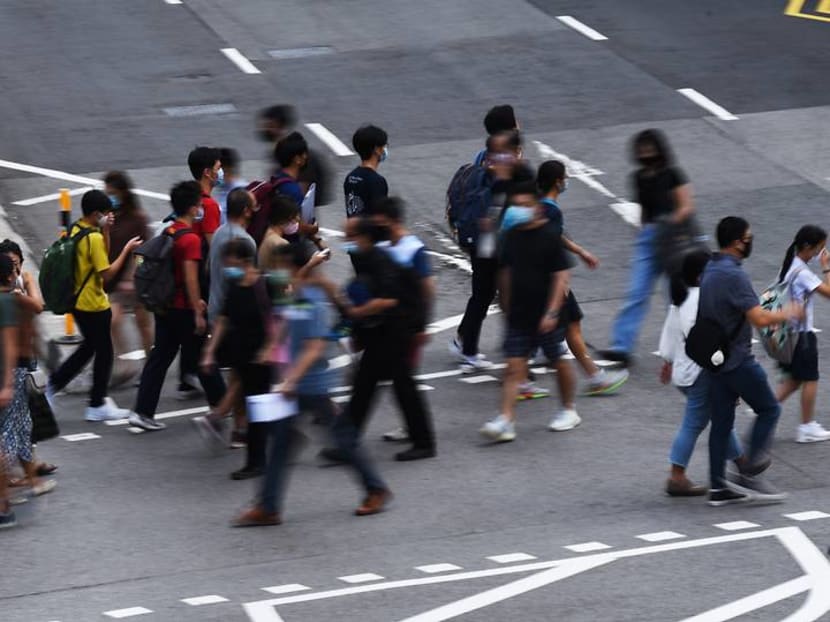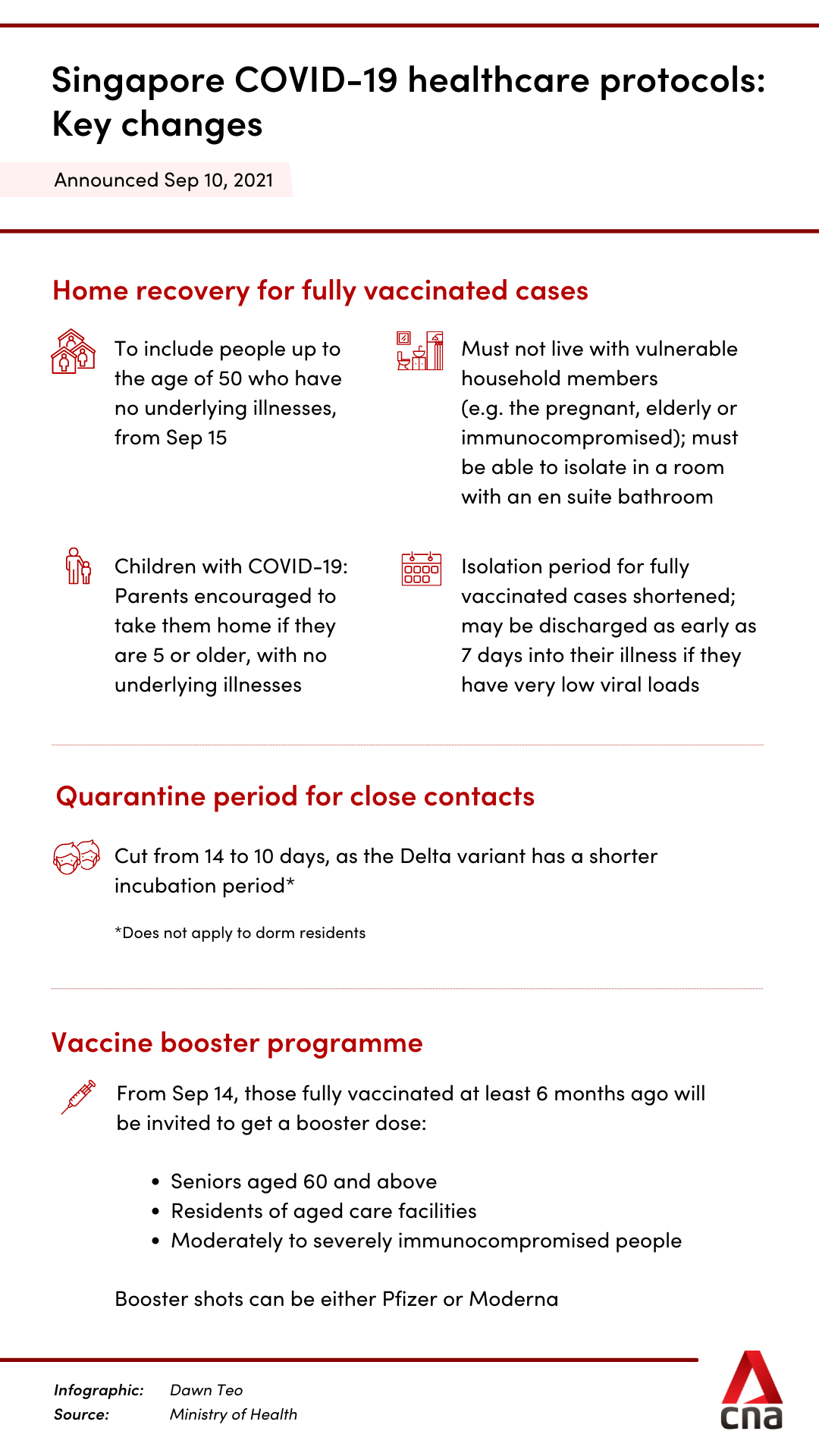Quarantine period for those exposed to COVID-19 to be cut from 14 to 10 days: MOH
The Delta variant's shorter incubation period is the reason for this, says the Health Ministry.

Pedestrians donning face masks crossing a road. (File photo: Calvin Oh)
SINGAPORE: From next week, the quarantine period for those exposed to COVID-19 will be reduced from 14 to 10 days, announced the Ministry of Health (MOH) on Friday (Sep 10).
This is because the Delta variant has a shorter incubation period, an average of under four days compared to an average of six days for the original strain.
“This means that it will take an average of four days after exposure to the virus, for the virus to be detectable in the individual,” said MOH in a press release.
Currently, the quarantine period is set at 14 days to account for the maximum COVID-19 incubation period.
“As such, we will reduce the quarantine period from 14 days to 10 days from the date of last exposure, provided the person under quarantine tests negative for COVID-19 at the end of his quarantine,” said MOH.
Upon release from quarantine, the individual would need to continue with daily antigen rapid tests until day 14 to mitigate any remaining risk of infection.
However, these changes will not apply to dormitory residents, said MOH, due to the larger risk of transmission given their cohorted living arrangements. Sectors may also have additional requirements due to their unique needs.
“This will be less disruptive to people and yet capture a significant majority of infected cases,” said Health Minister Ong Ye Kung at a COVID-19 multi-ministry task force press conference on Friday.
This shortened quarantine period does not apply to travellers entering Singapore.
PUBLIC HEALTH ALERTS
In addition, MOH will prioritise its contact tracing resources on preventing large clusters at high-risk and vulnerable settings.
The ministry said it will rely more on TraceTogether to identify close contacts of COVID-19 cases. It will also issue close contacts of a COVID-19 case with health risk warnings or health risk alerts, a move that was announced last week.
Those who receive health risk warnings will be required by law to get a polymerase chain reaction (PCR) test and self-isolate until they receive a negative result from their first test.
After that, they will need to continue to take antigen rapid tests, and then another PCR test on the 14th day.
People who receive a health risk alert are not subject to the same measures, but are “strongly encouraged” to go for a PCR test as soon as possible. Those who receive either alerts should also reduce their social interactions for 14 days.
Meanwhile, household members of confirmed COVID-19 cases will be required to quarantine themselves.
More information on the self-quarantine arrangement and the support provided to these people will be released later.
BOOKMARK THIS: Our comprehensive coverage of the COVID-19 pandemic and its developments
Download our app or subscribe to our Telegram channel for the latest updates on the coronavirus pandemic: https://cna.asia/telegram









